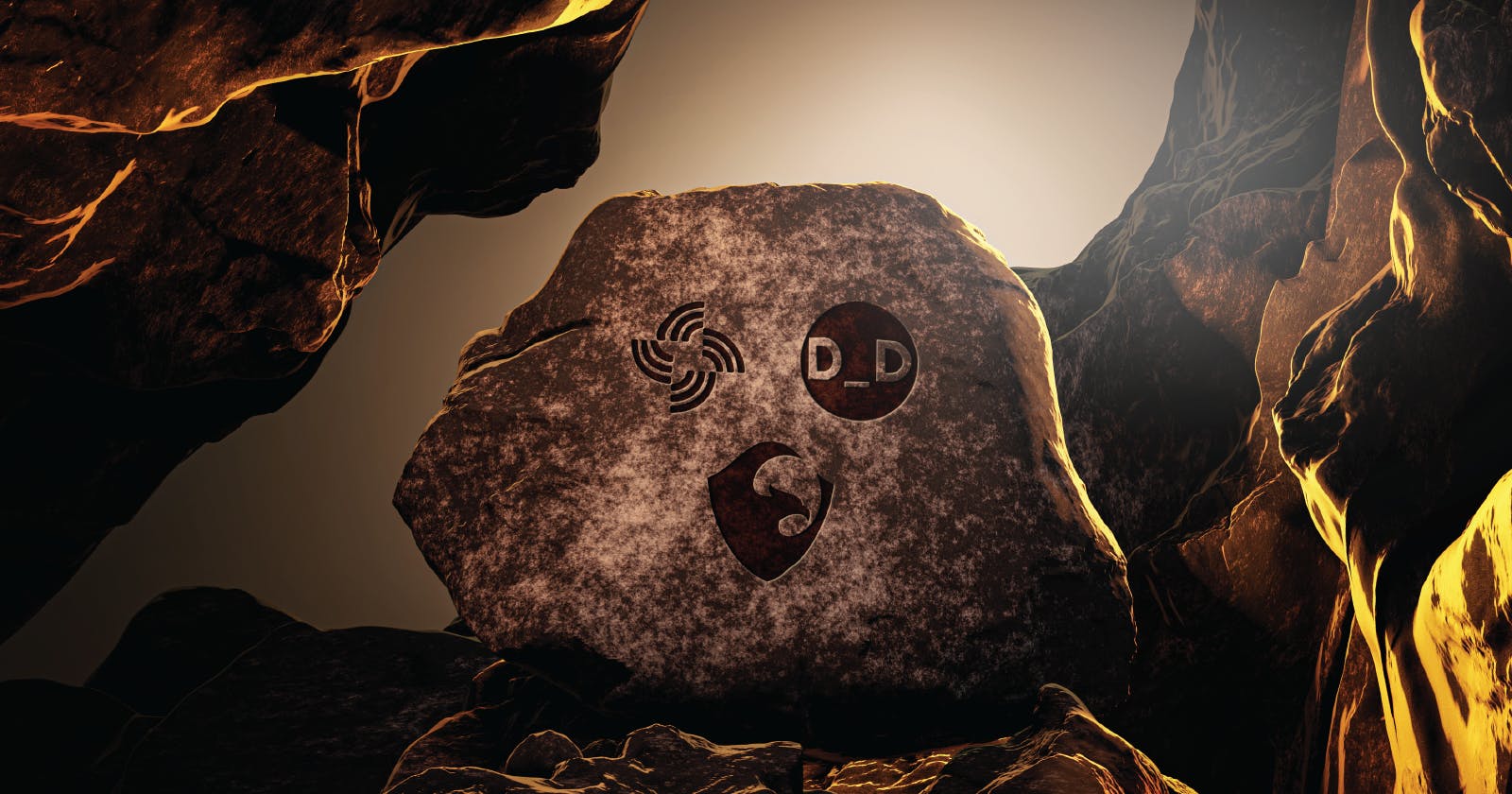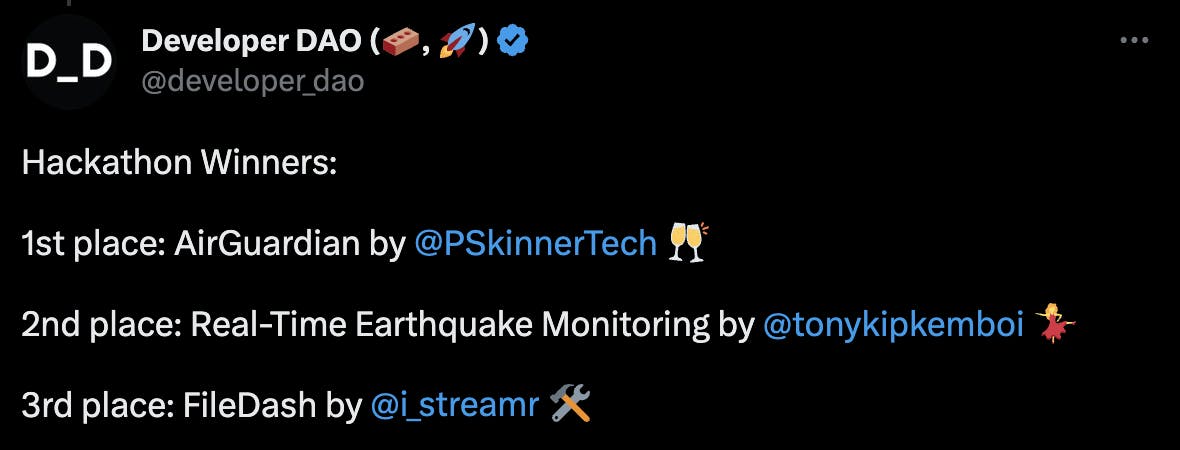From Volcano Ashes to Victory: My 72-Hour Hackathon Journey Creating AirGuardian
Last week, I participated in a Hackathon for Streamr, hosted by Developer_DAO, and guess what? I won first place and the grand prize of $3000 USD! But let me tell you, it was one wild ride packed into just 72 hours.
After attending an introduction webinar by @nicoburkart, DevRel for Streamr, I dove headfirst into their documentation. I was instantly captivated by the speed of their data streams and their IoT integration capabilities. With my startup, AGAMI, I've gained valuable experience in building IoT devices, so the idea of creating a physical product that generates decentralized data felt like a thrilling challenge.
I brainstormed for a few hours, initially toying with the idea of a child kidnapping/trafficking device. But let's be real, that was way too ambitious for a 72-hour project. Then, inspiration struck! Living in Colombia, my family and I are not far from an active volcano. While the lava isn't a major concern, the poisonous ash is. Local news advised people to have evacuation plans, and that got me thinking: "What if there was an early warning sign for potentially harmful air quality?" And that's when the lightbulb went off – AirGuardian, a decentralized air quality monitoring system, was born.
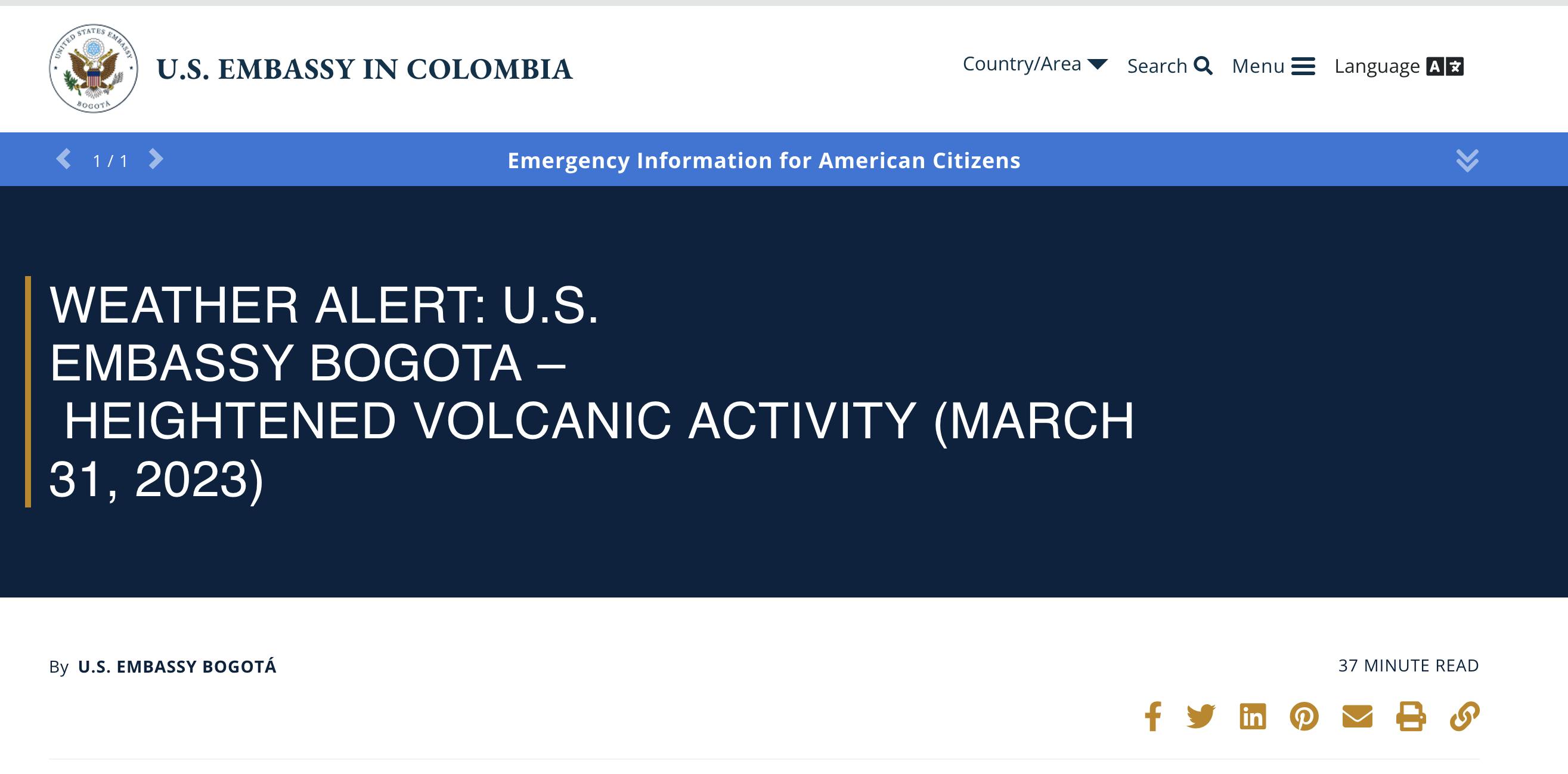
The support from the Developer DAO community was incredible; they loved the idea and encouraged me to build it. The project had two parts: the AirGuardian Nodes (github repo) to collect and send data to Streamr's pipelines, and the AirGuardian Monitoring system (github repo), a map displaying the geolocation of Nodes and the air quality data they collect.
I tackled the Nodes first. Funny enough, my experience with Raspberry Pi's only started when my son was old enough to build robots and other STEM projects. That knowledge proved invaluable for this build, setting up the Pi to interact with various components and push data to Streamr. Nico from Streamr was a huge help in guiding me through this process.
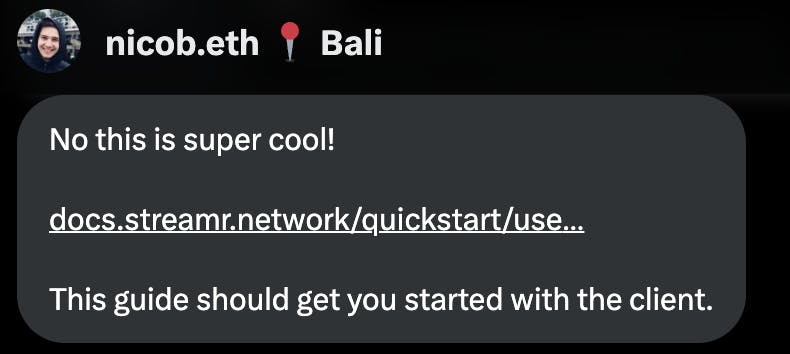
The second part was a bit trickier. I ambitiously wanted to create a fully decentralized map using Mapbox and deploying it onto Arweave. But time was running out, and I had a ton of bugs to fix. So, I blew the Developer_DAO conch shell horn and yelled, "DEVELOPERS... ASSSSEEMMMMMBBBBBLLLLE!" @pbillingsby was the first to answer the call. @pbillingsby is a DevRel for Arweave, a fellow Developer_DAO member, and a level 99 Debugging Grand Wizard. I learned so much from him in such a short period of time. But, despite his efforts to bestow me with his debugging wisdom, was out of time and opted for a basic map as an MVP. Still, no regrets. I learned so much for at least making the bold attempt.
Submitting my project was nerve-wracking – my first-ever Hackathon! I sought feedback from Developer_DAO members who were amazingly constructive in their criticism. The support from the community was incredible, and I couldn't be more grateful. To my astonishment, I started receiving messages about my entry, even from companies I had previously applied to.
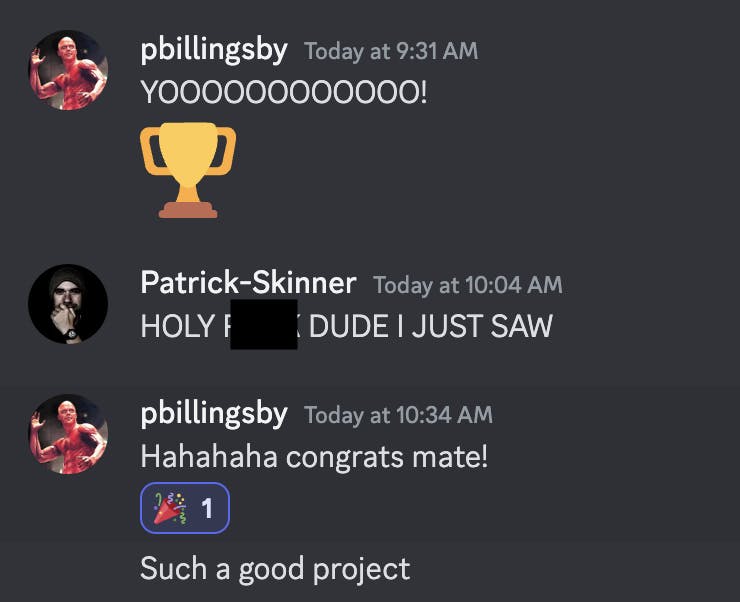
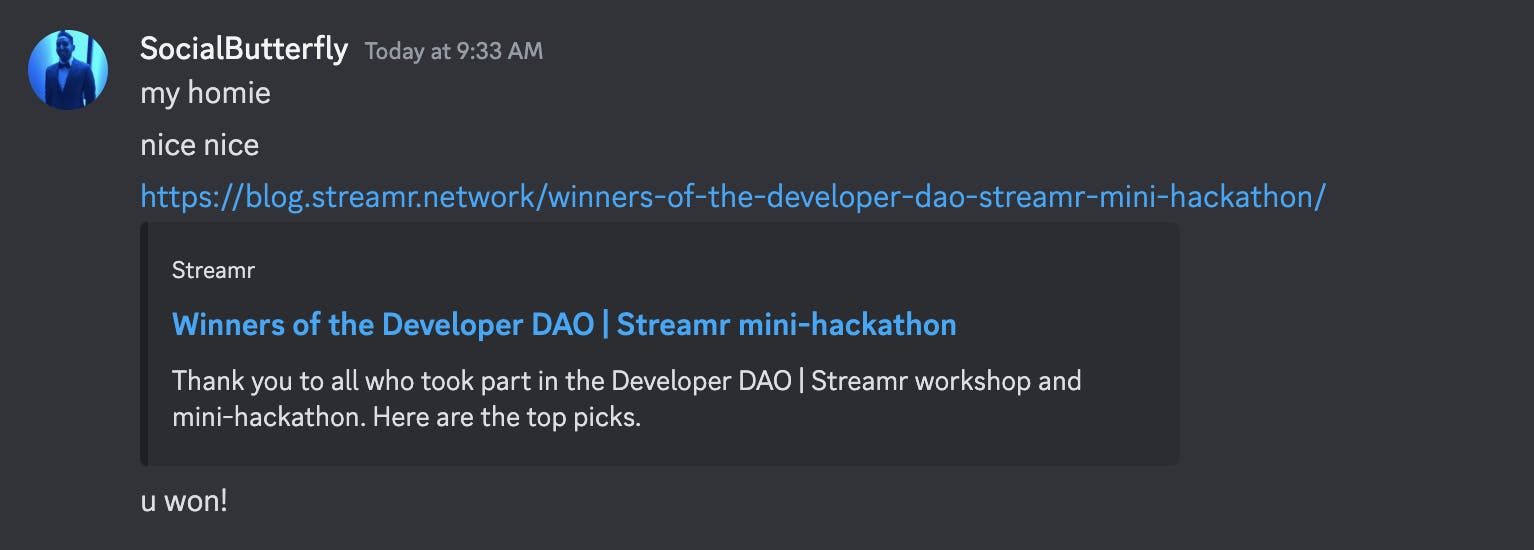
It was during one of those interviews that I discovered I'd won the Hackathon! I couldn't contain my excitement and even did the "All the Single Ladies" dance to celebrate.
The experience was beyond amazing, and I'm now a Developer_DAO supporter for life. Streamr is an incredible product, and I'll keep building on this project. The 2nd place winner, @tonykipkemboi, built a similar product for seismic activity detection, and we're joining forces to apply for grants and build create one super product. With me, Tony, Developer_DAO, Streamr and our powers combined.... 👀
With Y Combinator and Techstars application deadlines just around the corner, I'm seizing the opportunity and applying. You never know what might happen when you take a shot – and this Hackathon experience was a perfect reminder of that.

